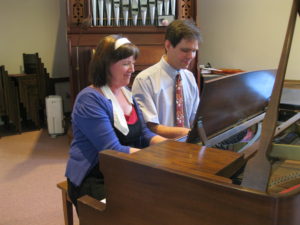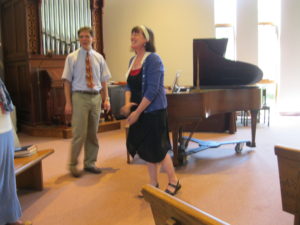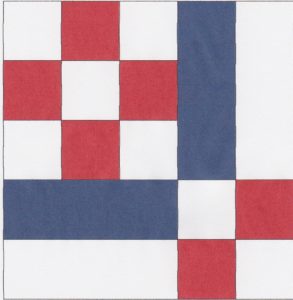Drawing Near – Sermon for July 10, 2016
NOTE: The audio version of this sermon is also available on https://www.facebook.com/goodshepherddecorah
and as audio on the blog where “Sermons” are posted in both printed and audio formats.
8th Sunday After Pentecost
July 10, 2016
Rev. Amy Larson
Luke 10:25-37
Click here to read scripture passages for the day.
Beloved of God, grace to you and peace in the name of Jesus.
Today as we hear this parable about a man lying on a road, dying, there are so many images that come to mind. We can picture black men and boys robbed of their dignity by systemic racism, beaten down, shot by those charged with protecting them, dying on our roads. We can picture law enforcement attacked in our streets as they sought to protect protesters. We can picture Philandro Castile, Alton Sterling, Tamir RIce, Michael Brown and so many others. We can picture the Dallas law enforcement officers killed on Thursday night: Officers Ahrens, Krol, Smith, Thompson, and Zamarripa, as well as those injured by protesters last night in Minnesota.
We can picture people lying in the road in need of help. But who is it that is coming to help? Are we like the Samaritan who helps? Or are we like the priest and the Levite who go to the other side of the road and just keep walking? We’d like to be the Samaritan but it feels hard to know what to do and how to be involved. We feel helpless and hopeless and removed from it all.
And though we want to be the Samaritan, we end up keeping our distance. We end up judging from afar. We judge the black people who are killed, we judge the police officers. We judge them rather than working to change the conditions that put black people and law enforcement officers at risk. We judge the hatred and anger of others, without recognizing that our own indifference is as much of a problem as abject hatred. As Elie Wiesel said, “the opposite of love is not hatred, it is indifference.” All too often, we are like the Levite and the priest, keeping our distance. Except it isn’t working. This week has made it clear that we can no longer act as if this is all happening to other people. We can no longer stay safely removed, at a distance. The fear, violence and prejudice in our society is killing us all. It is leaving us all beaten down and robbed of our humanity, our compassion for one another and our hope. We are all lying in the road, dying.
Yet we are not without help. God does not leave us stranded and alone. God does not remain at a distance.
Like the Samaritan in the story who comes near and is moved with compassion to help, God, in Jesus, has come near to us. God, in Jesus, has come near to heal our wounds and to help us. God begins to heal our wounds by first exposing them, by convicting us of the sins of racism, violence, hatred and indifference that are killing us. God convicts us so that our wounds can be brought into the open where cleansing and healing can happen. It is not faithful or helpful to claim that we are not prejudiced, that we are not part of the problem. We are all sinful, we are all shaped by the sinfulness of our society and our world. We need to acknowledge this so that healing can begin.
But God doesn’t just convict, God also shows us tender compassion and mercy. God does not respond to our sin with vengeance and violence, instead God chooses to forgive and tells us to do the same. God also works to heal us by leading us to live in God’s ways, in the ways that lead to life for us and all people. God gives us the command to love our neighbors as we love ourselves and then gives us an example of what that looks like in this story of the Samaritan. It is especially striking that a Samaritan is used as an example because Samaritans were despised by Jews. In fact, just one chapter before this story in the Gospel of Luke, James and John want to show vengeance to a Samaritan village that doesn’t welcome Jesus. They ask Jesus ,“Lord, do you want us to command fire to come down from heaven and consume them?” Jesus rebukes them for wanting to turn to violence and then just a bit later, he tells a story in which a Samaritan is a model for how to act.
The despised other, the Samaritan, is shown to be the most humane. In fact, the despised other is shown to be the most Godly because throughout the Gospel of Luke it is Jesus who is moved to compassion and it is God who is said to be merciful. In the Samaritan we see someone living in God’s ways – someone who comes near, who responds with compassion, who works to heal. This is what God does, this is what God’s servants do.
Jesus instructs us to go and do likewise – to draw near to others, to choose compassion and to heal.
Good Shepherd, we need to find ways to draw near to African-Americans and to law enforcement officers with compassion. We need to find ways to see, to listen, to learn. We need to acknowledge how difficult it is to be black in the US, and how different African-Americans’ experiences often are from ours. We joke about getting pulled over for a traffic violation, how we tried to talk our way out of a ticket, how many tickets we haven’t been able to avoid. We don’t have to spend much time, if any, thinking about how not to make police officers afraid and how not to get shot when we’re pulled over. We don’t have to tell our kids or grandkids not to play with toy guns outside for fear of making the police afraid.
After a black boy, 12 year-old Tamir Rice, was shot by police while holding a toy gun, black mothers organized toy gun buy-backs to keep their kids safe. I heard a black woman on public radio talking about her earliest memory. She was four years old and went out trick-or-treating with her six-year old sister and her fourteen year-old brother. The police mistook her teenaged brother for a thirty two-year old black man who was wanted for a burglary. They stopped him, took him in for questioning, and left a four year-old and a six year- old girl alone on the side of the road. It took the girls six hours to find their way home again. I’ve never had to worry about my tall son being mistaken for a criminal more than twice his age, but this frequently happens to black teenagers.
We need to examine our own privilege, our own implicit bias and our own indifference – the things that keep us distant from black people in the US. The implicit bias tests developed at Harvard are a really helpful tool for considering our blind spots. They help us to recognize that we all have prejudice, it is part of being human.
What matters is that we acknowledge the bias and bring it into the open where cleansing and healing can happen.
We also need to draw near to law enforcement officers. We need to let them know that they are not alone as they seek to keep the peace and keep us all safe in an increasingly polarized and militarized society. We need to let them know that we will support and work towards reforms and structural changes in hopes of reducing the violence, fear and suspicion that is leading to so much death. We also need to recognize that we are dependent upon one another. All of this brokenness leaves us all beaten and robbed. We are all in this together and we need each other.
And God shows up in the face of the stranger, the despised other, to bring us healing and help. God comes near to heal and helps us to do the same for one another. Let’s go and do likewise.
But first, let’s take a few moments to silently pray for our nation and for ourselves – for healing and hope.








